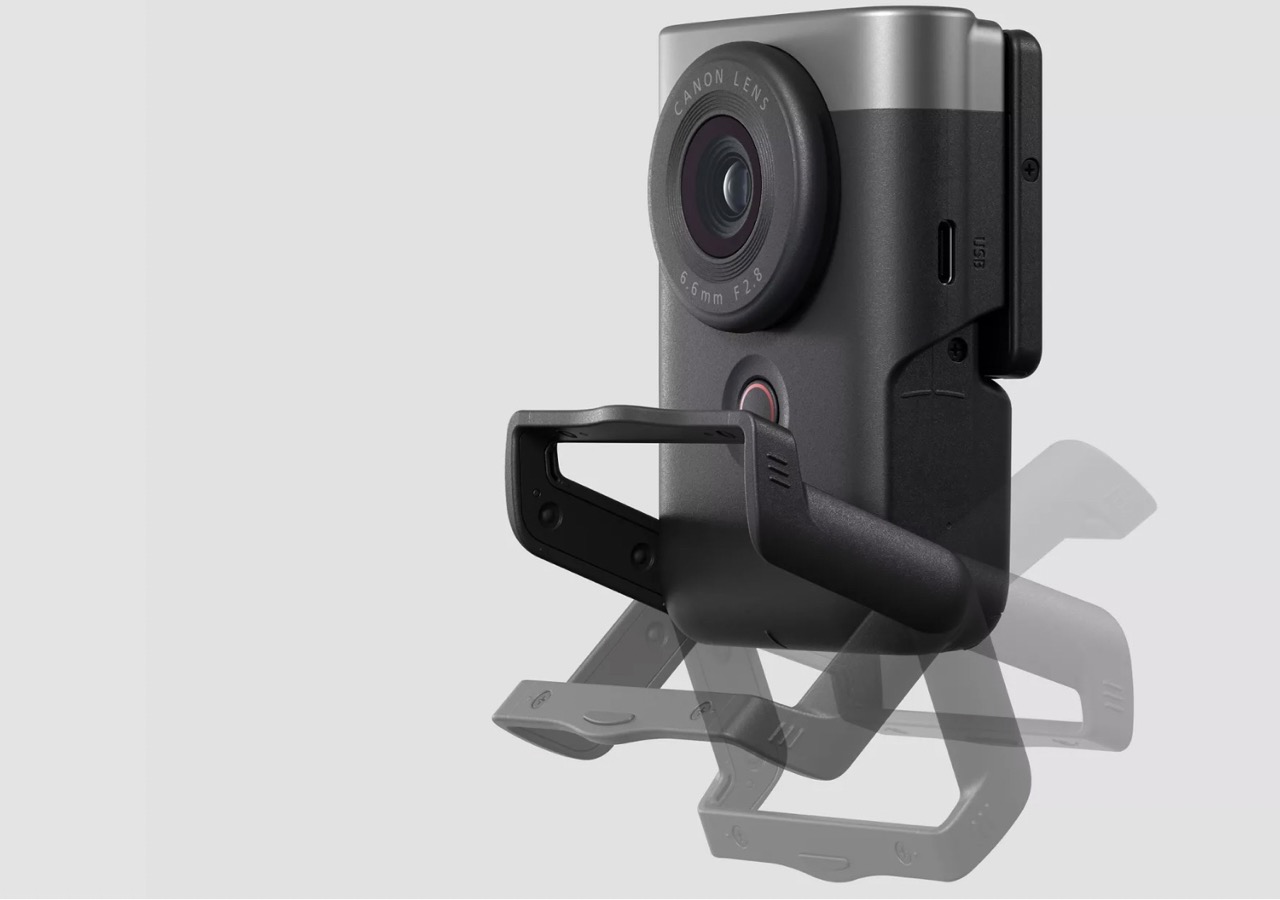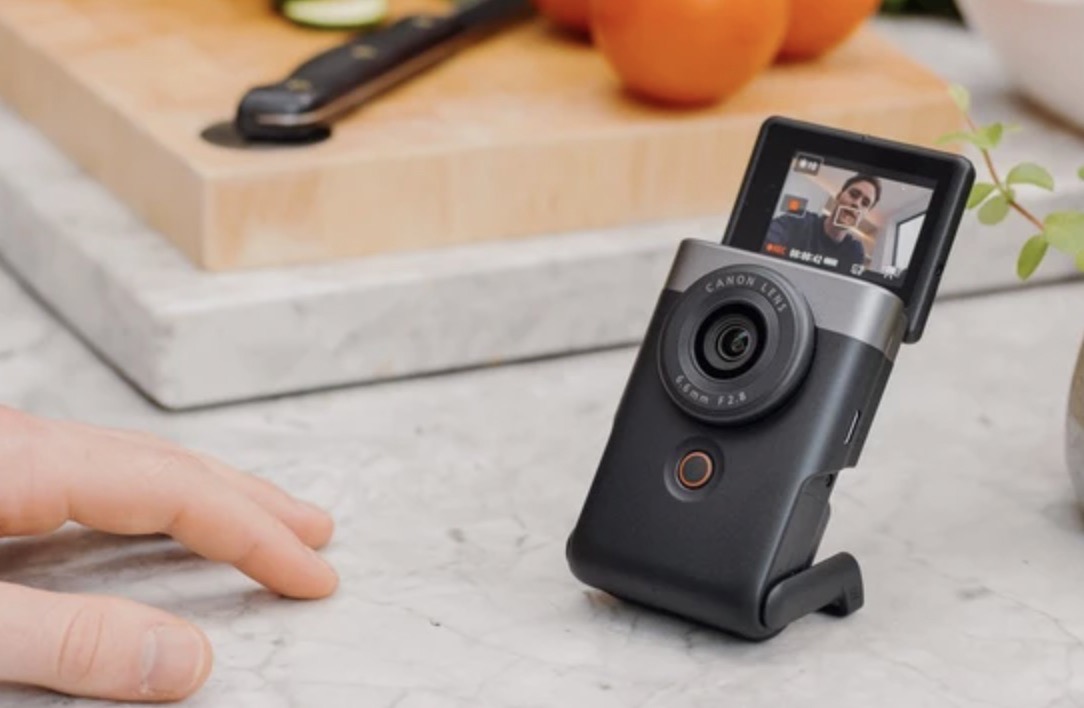Who says compact cameras are dead? Well, the market does, actually; the mobile phone has all but killed off the category altogether, so it’s interesting to see Canon take another stab at the market. The PowerShot series of cameras today gained its newest family member, the V10.
The main question this product has to overcome is ‘why not just use your phone,’ and the camera nerd in me is relieved to have a good answer: Phone cameras are great, but they have to be small. With that restriction removed, Canon can do what Canon does best: Build cameras. On paper, the little camera looks great; it is built around a 1-inch CMOS sensor. That alone is a big deal; phone cameras are getting good enough now that we are right at the edge of what physics can do for us: Sensors get hot, and with all those pixels packed into a tiny space, and limitations on how good and precise lenses can be, you’re butting up against the practical maximum image quality you can get.
If you want to get better from there, you need to add smarts (i.e. image processing enhancements, which is increasingly AI-powered), or shift to bigger sensors. Canon’s Powershot V10 treats us to both: it has 14 built-in color filters and ‘Smooth Skin’ mode to help you look your best.
The sturdy vertical body is an entirely new design for Canon – and it makes a lot of sense in a world where these cameras are more likely to be placed somewhere to film yourself, than hand-held and shooting. Which is an additional point: Smartphone cameras are getting great, but a lot of this kind of content is filmed with the selfie camera, which is often lower resolution and quality than the rear-facing cameras. Canon’s V10 resolves that by making the screen flippable, and you get the best of both worlds: Full-quality camera and a preview to frame your shot.
Canon’s newest helps make it possible to shoot in both vertical and horizontal orientations, matching the various social media platforms. If you’re wanting to use the camera as a webcam, streaming cam, or content production cam, it has you covered, whether you’re shooting for YouTube, TikTok, or – a favorite among home chefs – OnlyPans. Whatever else the cool kids are doing with their video, Canon hopes it can win folks over.
The camera includes two high-quality stereo microphones, and a third microphone added to aid noise reduction. It also connects with the Canon Camera Connect app to transfer videos over Wi-Fi (no more messing about with memory cards!) and the camera has USB ports to easily transfer to a computer at higher speeds, or to be used as a web cam.

The V10’s adjustable stand means you don’t have a lug a tripod with you everywhere. Neat! Image Credit: Canon
For those on the go, the camera charges over USB-C, which is a nice perk, and it has a built-in stand that makes it easy to tilt the camera up to 30 degrees. Genius; it’s as if camera manufacturers finally realized that not everybody is as excited as I am to buy tripods in all weights and sizes.
The Canon PowerShot V10 can be purchased as part of two different bundles. The standard kit includes a power cable, soft case, lens cap, windshield and wrist strap. For those who want more creative options, an advanced kit includes a cage that can be used to attach additional lighting options or hold an external microphones etc.
Starting at $429, the camera is well-priced to be positioned as cheaper and better than a smartphone and a stepping stone on the way up to a full-size interchangeable lens camera.
Canon produced a video to show how it all works, along with some sample footage from the camera:
